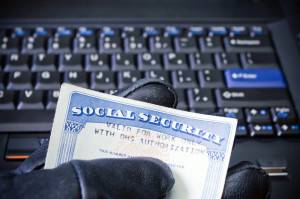Federal Fraud Laws: Sentencing, Punishment and Other Consequences
Federal fraud law is defined under 18 U.S.C. § 10011 as knowingly and intentionally doing any of the following:
- Falsifying, concealing, or covering up by any trick, scheme, or device a material fact;
- Making any materially false, fictitious, or fraudulent statement or representation; or
- Making or using any false writing or document knowing the same to contain any materially false, fictitious, or fraudulent statement or entry.
If you are currently being accused for a federal fraud offense in California, you must speak immediately to one of our experienced federal lawyers. With over 40 years of experience, Wallin & Klarich will guide you and your loved ones through this difficult process. Call Wallin & Klarich today at (877) 4-NO-JAIL or (877) 466-5245.
Prosecution for a Federal Fraud Crime
You may be prosecuted for federal fraud depending on whether you:
- Defrauded or attempted to defraud a U.S. government agency such as the IRS and Medicare;
- Committed or attempted to commit fraud using the telephone, U.S. or private mail carrier, the Internet, or via other forms of communication across state or national borders;
- Involved certain financial institutions, such as a bank;
- Involved securities or privileged financial information – “stock fraud” or “insider trading” and/or
- Involved computers:
- Used by the federal government or certain financial institutions;
- Where the computer offenses are interstate in nature; or
- Where the computers are utilized in interstate or foreign commerce.
Defenses to a Federal Fraud Crime
A U.S. attorney bears the burden of proving every element of a federal fraud crime beyond a reasonable doubt in order to convict you. Generally, fraud requires that you specifically intended to deceive someone for financial gain.
Possible defenses that your federal criminal defense attorney may raise include, but are not limited to the following:
- Insufficient Evidence: There is not enough evidence to convict you;
- No Intent: You did not intend to defraud anyone. You were coerced into doing so by force or fear, for example;
- No Knowledge: You had no knowledge of a scheme to defraud;
- Mistake of Fact: You did not know that what you said was untrue;
- Non-Fraudulent Statement: Not all false statements are fraudulent. A false statement must be related to a material fact;
- No Justifiable Reliance: Reliance by the alleged victim on a patently absurd false statement generally will not give rise to fraud;
- No Injury: Your alleged victim did not suffer any loss or injury;
- Illegal Search and Seizure: The evidence against you was obtained without a valid search warrant; and/or
- Entrapment: You committed fraud only as a result of being tricked into doing so by law enforcement.
Sentencing and Punishment for Federal Fraud Crimes

According to the United States Sentencing Commission, fraud crimes represented the third largest portion (10.5 percent) of federal criminal cases in 2012. Financial losses in these cases ranged from $0 to well over $6 billion, with the median loss at $150,546.
There are dozens of fraud-related crimes that may be prosecuted under federal law. Some of the most common types of federal fraud crimes are described below, along with the punishment authorized upon a conviction.
Bank Fraud (18 U.S.C. § 13442)
You can be prosecuted under federal law if you knowingly use or attempt to use a scheme:
- To defraud a financial institution; or
- To fraudulently obtain money, credit, securities or other property from a financial institution by false pretenses or misrepresentation.
If you are convicted of bank fraud, you face up to 40 years in federal prison, a fine of up to $1 million, or both.
Bankruptcy Fraud (18 U.S.C. § 1573)
You commit bankruptcy fraud if you devise, intend to devise, execute, conceal or attempt to execute or conceal a scheme to defraud (a creditor, for example) by using bankruptcy court to carry out your crime, such as:
- Filing a petition, including a fraudulent involuntary petition under Chapter 11 of the United States Code;
- Filing a document in a proceeding under Chapter 11; or
- Making a false or fraudulent representation, claim, or promise concerning a proceeding under Chapter 11.
Bankruptcy fraud is a felony, punishable by up to 5 years in federal prison, a fine of up to $250,000 ($500,000 for an organization), or both.
Citizenship Fraud (18 U.S.C. § 9114)
If are not a United States citizen and you falsely and willfully represent yourself as one, you can be punished by up to three years imprisonment, a fine of up to $250,000, or both if you are convicted of citizenship fraud.
Computer Fraud (18 U.S.C. § 10305)
Computer fraud under federal law is defined as intentionally accessing a computer without authorization or in excess of your authorized use to obtain any of the following:
- Information contained in a financial record of a financial institution, or of a card issuer or contained in a file of a consumer reporting agency on a consumer;
- Information from any department or agency of the United States; or
- Information from any protected computer;
Using a computer to knowingly, with intent to defraud, obtain anything of value worth more than $5,000 in a one-year period is also computer fraud under federal law.
If a U.S. attorney successfully prosecutes you for committing computer fraud, you can be punished by up to 10 years in prison, a fine of up to $250,000 for an individual ($500,000 for an organization), or both. A second or subsequent conviction doubles your sentence to up to 20 years imprisonment.
Health Care Fraud (18 U.S.C. § 13476)
You can be prosecuted for committing health care fraud if you knowingly and willfully execute, or attempt to execute, a scheme to defraud or obtain by means of false pretenses money or property from any health care benefit program such as Medicare and Medicaid. Examples include over-billing for healthcare services and charging a patient for performing unnecessary medical procedures.
If a federal court convicts you of health care fraud, you can be sentenced to serve up to 10 years in prison, a $250,000 fine ($500,000 for an organization), or both. If the violation results in serious bodily injury, your sentence can double up to 20 years imprisonment. If death occurs as result of committing health care fraud, you face life imprisonment.
Identity Theft Fraud (18 U.S.C. §§ 1028, 1028A7)

If you knowingly and without lawful authority produce, transfer, or possess with intent to unlawfully use an identification document, authentication feature, or a false identification document, you can be prosecuted under federal identity theft law. Examples of identity include state-issued birth certificates and driver licenses, U.S. Social Security cards and U.S. passports.
If you are convicted of identity theft fraud, you face up to 15 years in a federal prison, a fine of up to $250,000 ($500,000 for an organization), or both.
Your face up to 20 years imprisonment if you commit identity theft while:
- Facilitating a drug trafficking crime;
- In connection with a crime of violence; or
- After a prior conviction for identity theft;
You face a sentence of up to 40 years’ imprisonment if you commit identity theft to facilitate an act of domestic or international terrorism.
Mail and Wire Fraud (18 U.S.C. § 13438)
Using the United States Postal Service, a private mail carrier (such as FEDEX), telephone, fax, internet, radio, television or any interstate or international wire communication as a part of a scheme to defraud is a federal offense. Because of the broad nature of these laws, mail and wire fraud are commonly charged in a wide range of cases.
You can be sentenced to serve up to 20 years in prison, a fine of up to $1 million, or both if a U.S. attorney successfully prosecutes you for wire or mail fraud.
Mass Marketing Fraud
Mass marketing fraud is the use of mass-media communications to contact, solicit, and unlawfully obtain money from others. There are various mediums by which this crime is committed, including but not limited to:
- Mail services;
- Email;
- Text (SMS) messaging;
- Phone calls and faxes;
- Websites;
- Radio;
- Television; and
- Direct face-to-face.
Mass marketing schemes involve the solicitation of fraudulent information to large numbers of potential victims in an effort to trick people on a global scale into giving up their private information or money.
Punishment for this crime is dependent on whether you committed this act via computer (see computer fraud) or mail or wire transfer (see mail or wire fraud).
Mortgage/Loan Modification Fraud
Mortgage fraud under federal law is intent to misrepresent or omit information on a mortgage loan application to obtain a loan or to obtain a larger loan than would have been obtained had the lender or borrower known the truth. Mortgage fraud is prosecuted as wire, mail or bank fraud and money laundering at the federal level.
An agent of the lender who misleads or deceives a consumer can also be prosecuted for what is commonly known as “predatory lending.”
Upon a federal conviction for mortgage fraud, you can be punished by up to 40 years imprisonment. Restitution to your victims and/or the government for any money or property that you fraudulently obtained is typically included in your sentence.
Securities Fraud (18 U.S.C. § 13489)
Securities and commodities markets are regulated by the Securities and Exchange Commission (SEC). Examples of securities fraud include Ponzi or pyramid schemes, investment schemes, broker embezzlement, and foreign currency fraud. Additionally, if you trade stock or other securities using information that is not available to the public, you can be prosecuted for what is commonly known as “insider trading.”
Securities fraud is punishable as a felony. You face up to 25 years imprisonment, a fine of up to $250,000 ($500,000 for an organization), or both if you are convicted of this very serious federal offense.
Tax Fraud (26 U.S.C. § 720110, et seq.)
Tax fraud occurs whenever a taxpayer attempts to evade or avoid paying federal income taxes. Examples of tax fraud include overestimating business expenses, underreporting income or even not filing a tax return.
Tax Evasion
If you willfully attempt to evade any tax imposed pursuant to 26 U.S.C. § 7201, you can be found guilty of a felony. Upon conviction, you face up to 5 years in federal prison, a fine up to $100,000 ($500,000 in the case of a corporation), or both.
Tax Avoidance
Failing to file a federal tax return when you owe the IRS money is a misdemeanor crime. (26 U.S.C. § 7203) You are obligated to pay your taxes, make a return, keep records and supply required income information under federal law. If you are convicted of tax avoidance, you can be sentenced to serve up to one year in federal prison, fined up to $25,000 ($100,000 in the case of a corporation), or both.
Other Consequences of a Federal Fraud Conviction
In addition to the penalties described above, you also face restitution to your victims, loss of your professional license (doctor, stockbroker, attorney, etc.) and years of supervised probation upon your release from custody. Additionally, federal law requires that you serve a minimum of 85 percent of your sentence before you are eligible for release.
Why Hire Wallin and Klarich?

Our attorneys at Wallin & Klarich have over 40 years of experience in federal court successfully defending our clients facing federal fraud-related charges. Hiring an attorney from Wallin & Klarich to represent you is your best chance to avoid the most serious consequences of a federal conviction including decades in prison, enormous fines and the loss of your professional license.
With offices in Los Angeles, Orange County, San Diego, Riverside, San Bernardino, Ventura, West Covina and Victorville, Our attorneys at Wallin & Klarich are available 24/7 to make certain all of your constitutional rights are protected. We will evaluate and employ every available strategy that gets you the best result possible in your case.
Call us today at (877) 4-NO-JAIL or (877) 466-5245 for a free telephone consultation. We will get through this together.
All of the information provided above was retrieved from the following sources:
1. 18 USC 1001 – http://www.law.cornell.edu/uscode/text/18/1001↩
2. 18 USC 1344 – http://www.fdic.gov/regulations/laws/rules/8000-1250.html↩
3. 18 USC 157 – http://www.law.cornell.edu/uscode/text/18/157↩
4. 18 USC 911 – http://www.law.cornell.edu/uscode/text/18/911↩
5. 18 USC 1030 – http://www.law.cornell.edu/uscode/text/18/1030↩
6. 18 USC 1347 – http://www.law.cornell.edu/uscode/text/18/1347↩
7. 18 USC 1028 – http://www.law.cornell.edu/uscode/text/18/1028↩
8. 18 USC 1343 – http://www.law.cornell.edu/uscode/text/18/3143↩
9. 18 USC 1348 – http://www.law.cornell.edu/uscode/text/18/1348↩
10. 26 USC 7201 – http://www.law.cornell.edu/uscode/text/26/7201↩

